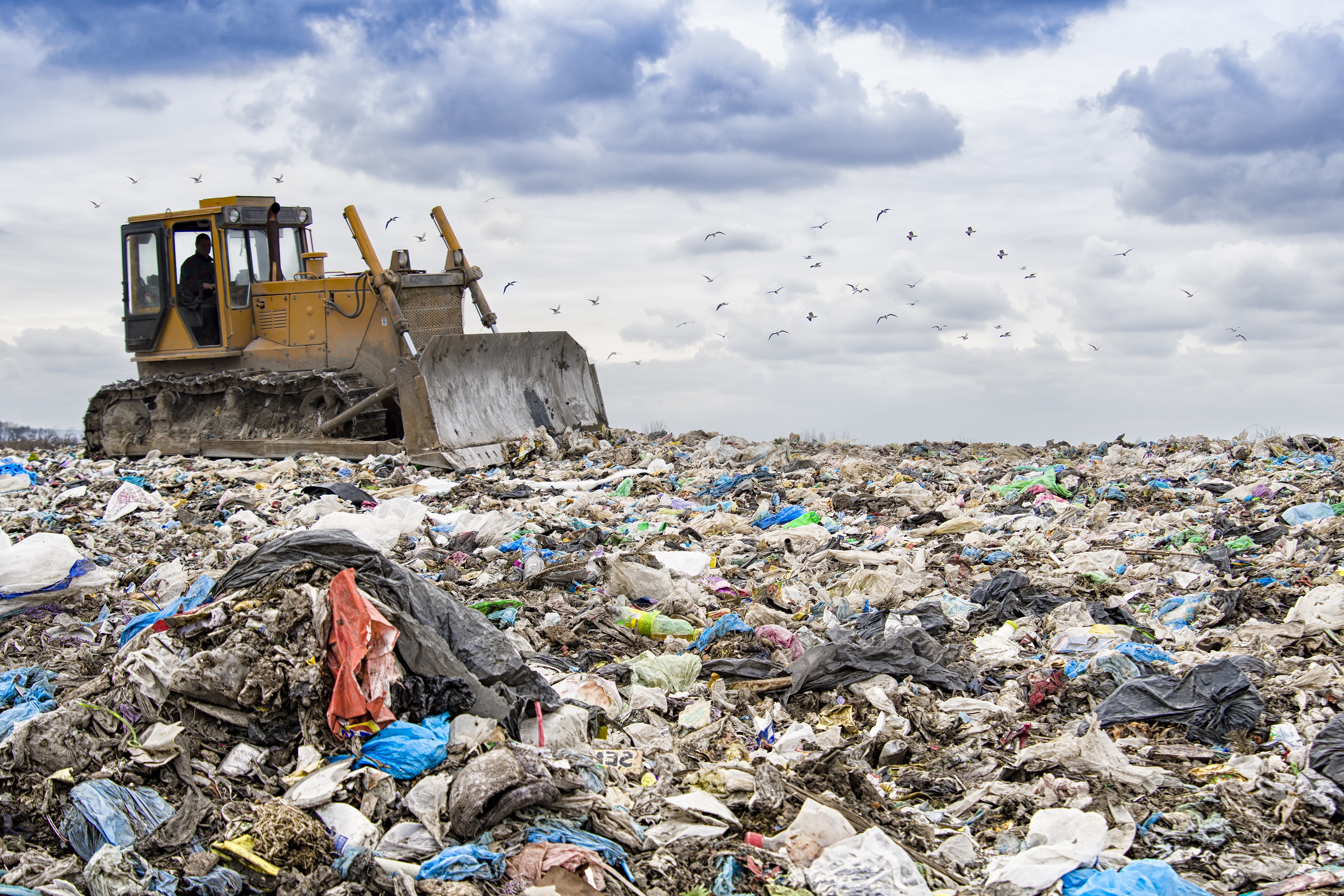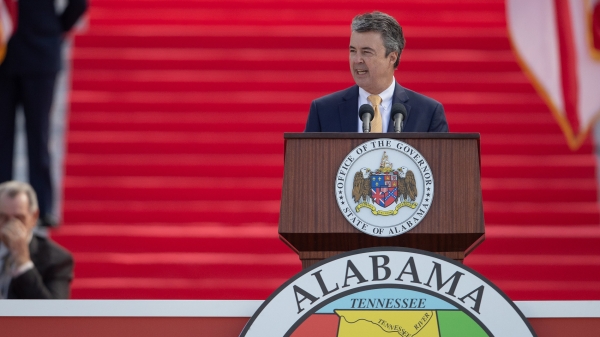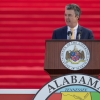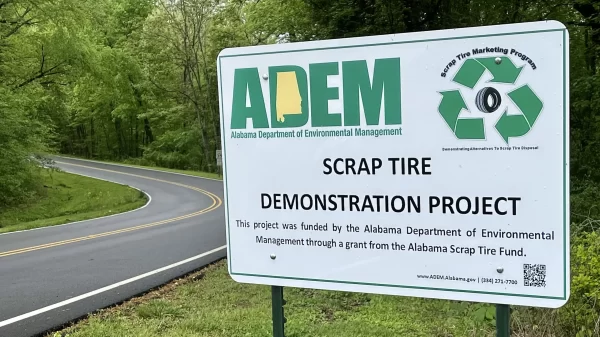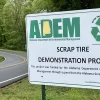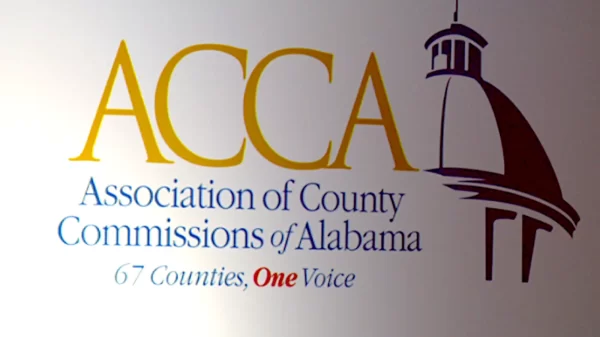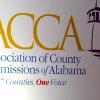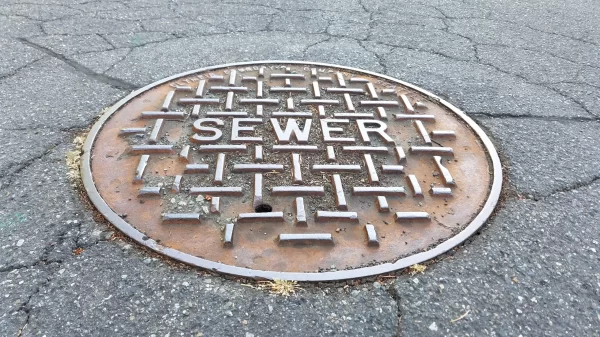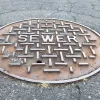The Alabama House of Representatives passed a bill Thursday to change the statutory definition so that temporary “cover” in landfills can be a material other than “earth.”
House Bill 140 is sponsored by State Rep. Alan Baker, R-Brewton.
The bill allows landfills to use alternative daily covers in place of earth to cover landfills until the next business day. “The EPA has allowed this since 1979,” Baker said. It would save landfills the cost of using earth for daily cover.
“This does not change anything in the operating rules for landfills,” Baker said.
A number of members from both parties expressed concerns about this bill on Tuesday, so the bill was carried over until Thursday.
Speaker of the House Mac McCutcheon told reporters, “Sometimes in a debate you can see that the debate is not a filibuster or anti-debate; but rather is an honest effort by members to understand a bill.”
“There was a lot of misinformation out there,” McCutcheon said. The Environmental Services Agency and ADEM were brought in to explain the members and address their concerns.
McCutcheon said that human biosolids is a separate issue and that Rep. Tommy Hanes has introduced legislation dealing with that issue.
Alternative daily cover is often described as cover material other than earthen material placed on the surface of the active face of a municipal solid waste landfill at the end of each operating day. It is utilized to control vectors, fires, odors, blowing litter, and scavenging. Federal and various state regulations require landfill operators to use such earthen material unless other materials are allowed as alternatives (Mitchell Williams writing on Oct 31 in JDSUPRA).
Soil cover can use valuable air space. Further, it can generate the need to excavate and haul soil to the facility. Alternative daily covers are often advocated to be a more efficient and cost-effective means of cover (Williams).
Baker said that it would be up to ADEM (the Alabama Department of Environmental Management) in the permit whether to allow a proposed alternative cover or not.
Baker said, “This bill does not change any of the materials used as cover.” “This would keep us from having to use that good earth in landfills when other materials are available. If it becomes a nuisance ADEM can revoke a cover on the permit. Daily cover has to be approved at the discretion of ADEM.”
Baker said that only materials not constituted as a risk to health or are not a hazard can be used.
An environmental attorney shared the list of ADEM alternative covers with the Alabama Political Reporter. The list includes: auto fluff, excavated waste, synthetic tarps, coal ash, petroleum contaminated soil, automotive shredder residue, shredder fluff, wiring insulation, contaminated soils, paper mill (including wood debris, ash shaker grit, clarifier sludge, dregs, lime), 50 percent on-site soil and 50 percent tire chips, spray-on polymer-based materials, reusable geosynthetic cover, automobile shredder fluff, tarps, foundry sand, clay emulsion known as USA Cover Top clay emulsion, non-hazardous contaminated soil, non-hazardous solid waste clarifier sludge, steckle dust all generated from Nucor Steel Tuscaloosa Inc., non-coal ash from Kimberly Clark operations, lagoon sludge from Armstrong World Industries operations, meltshop refractory material from Outokumpu Stainless USA operations, paper mill waste (non-coal ash, slaker grits, dregs, and lime), biodegradable synthetic film, fly ash, residue from wood chipper or paper, slurry with a fire retardant and tactifierl, Posi Shell Cover System, waste Cover, foundry waste, 50 percent soil and 50 percent automobile shredder fluff, incinerator ash, green waste to soil. Sure Clay Emulsion Coating, alternative cover materials (manufactured), compost produced by IREP Montgomery-MRF, LLC, 50 percent saw dust mixed with 50 percent soil, and waste soils considered to be special waste.
McCutcheon said that members did not understand that these were just temporary covers. That was explained to them.
Alabama landfills have used alternative covers for years; but three people sued saying that this was not allowed under Alabama law and that ADEM had exceeded its mandate by permitting alternate covers. On October 11, 2019 the Alabama Court of Civil Appeals found in favor of the plaintiffs.
HB140, if passed, would address this oversight in the Alabama legal code so that ADEM and the landfills can legally continue to use alternate covers and not have the added expense of quarrying dirt for daily cover.
A Senate version of the same bill received a favorable report last week from the Fiscal Responsibility and Economic Development Committee.
HB140 now goes to the Alabama Senate.








































